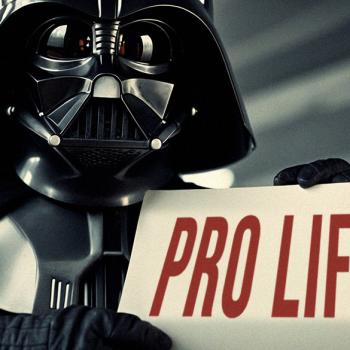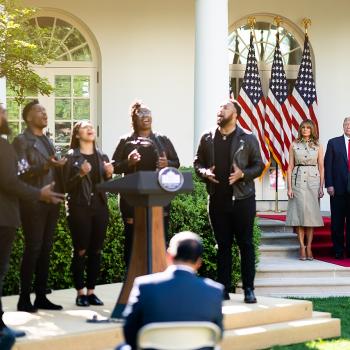As I point out in The Bible: An Introduction, the Bible is a dangerous book, it always has been. People have used it to justify egregious things like mass killings, slavery, scamming the vulnerable out of their life savings—and that's just a start. On the other hand, the Bible is also one of the foundations of western culture. It has grounded the laws and shaped the social, economic, and foreign policies of most western nations. The Bible has also helped millions of people find meaning and significance in their lives. It has been a means of understanding how to relate to the divine.
Both sides in many debates have claimed that the Bible is on their side. For example, both the Ku Klux Klan and those who marched for civil rights in the 1960s used the Bible to support their views. People who believed that the Bible said there had to be an Israel to ensure Christ's Second Coming pressured the U.S. government to support the creation of the nation of Israel at the end of World War II. Some still urge support of Israel for that reason. Even though some prominent crafters of the U.S. Constitution were deists (e.g., Jefferson), they looked to the Bible for moral guidance and for principles expressed in the Constitution.
Present day arguments about sexual morality, social programs, and immigration policy are influenced by what people find in the Bible as well. Some argue that the Bible condemns homosexual marriage, others that it demands full recognition of the love and commitment of gay people. Some use the Bible to argue that all marriages should be hierarchical, with men in the superior position; others use it to say that marriages should be egalitarian. Some say the Bible would have poor people take responsibility for themselves while others believe it instructs society to provide help. While the Bible has been used on both sides in many arguments, its message has not always been represented equally well by all sides. So we all need to be equipped to evaluate the uses people make of the Bible.
And the Bible influences more than social and political debates. Recent movies, from Noah to The Ten Commandments and The Last Temptation of Christ to The Life of Brian (to say nothing of some Saturday Night Live skits), expect some level of biblical literacy. More subtly the Bible has shaped much classic literature. The character of Ahab in Moby Dick draws from the story of Job. Dostoyevsky's Idiot echoes themes from the sayings of Jesus. Faulkner's The Sound and the Fury, especially the climactic scene, relies on biblical themes and language. The Bible's influence on Art is even more expansive. Unless we know the stories in their biblical form, we will miss some of the meaning that comes from the use and sometimes altering of the stories in their cultural appearances. In addition, those who do not know something about the Bible for themselves are at the mercy of some of the foolishness that acts like serious scholarship on the History Channel!
Beyond debates of the day and cultural and literary allusions, the Bible continues to shape our understandings of our world and of ourselves. Its powerful narratives of creation have influenced what we say it means to be human and how we relate to the world around us. Being related to God and set apart from the rest of creation, as those stories speak of humans, has led our culture to place a high value on each person, even as it has led some to think that we have no ecological responsibility, just license to master the world. These originating stories led to and support the idea that there is a common human nature that demands some commonality in human rights throughout the world. The Bible's stories are so powerful that they continue to be retold for new purposes and with new meanings (as their literary uses show). The Bible continues to influence even how we define right and wrong (think of the Golden Rule).
The Bible also offers us resources for creating caring communities. Whether or not a reader grants it authority, it gives us narratives that provide lenses to ponder our identity and our ways of forming relationships. It sometimes shows us people in the middle of arguments about what is right and wrong. As culturally bound as those arguments are, they often expose some of the underlying issues in ethical and political dilemmas. Sometimes they show us people acting out of the highest ideals. Other times they portray people committing atrocities—often showing us what life consequences the authors think such behavior brings. The Bible, then, affords us examples of people trying to make sense of their lives. These examples can help us think about those largest issues of life as we struggle to find meaning.
Recognizing the various ways that the Bible influences our world (whether you think that is good or regrettable) compels us know something about what is in it and how to understand it. Some of ways the Bible is interpreted in the public square are not the only, or even among the better, ways to understand it. To be engaged citizens we need to be prepared to see if the text being cited can reasonably serve that purpose.
Those who see the Bible as an authority often find very different things in it. Sometimes this is because they misunderstand what is actually in it. Other times it is because they use different methods for appropriating the text's authority. It is important for all of us to rethink our presumptions about the Bible and it contents. Such reflection will help us find common ground that will enable respectful, even loving, dialogue. It can lead to acknowledging the integrity of those we disagree with, even if we oppose the view they take. The messages of the Bible call for mutual respect that can create genuine community that includes diverse outlooks.
8/16/2014 4:00:00 AM




